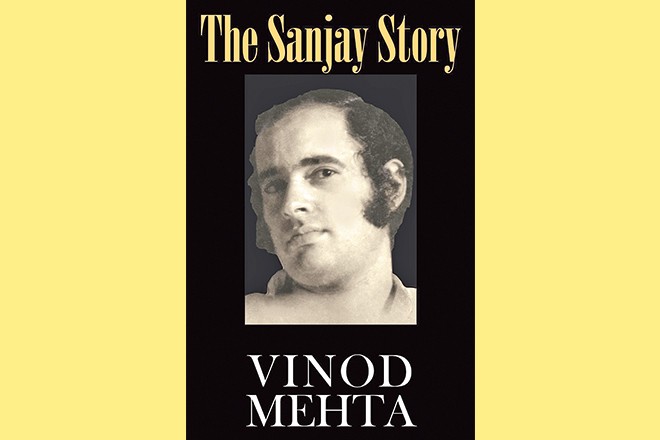REAL TO REEL
Can you guess who has been the most widely featured politician in Bollywood in recent years? Who has been shown as the eternal bad guy, someone who wants all the power for himself? Believe it or not, it’s Indira Gandhi’s son, Sanjay Gandhi.
Sanjay was highlighted in Baadshaho (as Sanjeev, played by Priyanshu Chatterjee) and in Indu Sarkar (played by Neil Nitin Mukesh) and although he died at 33, the reverberations of his impulsive youth are still felt in India. The best way to know about the colorful life of the man, who was once predicted to be ‘future Prime Minister of India’ is to get hold of his biography, and when there is one by Vinod Mehta, there’s no need to look any further.
Vinod Mehta was one of the best editors in India, so when he authored a book – The Sanjay Story – on the most controversial character of the Nehru-Gandhi dynasty, everyone wanted to know how he would tackle the man behind the 1970s Emergency.
He starts the book with Motilal Nehru, Sanjay’s great grandfather and then moves to Jawaharlal Nehru, his daughter Indira, and finally Sanjay, who at the time of his death was being touted as the next Gandhi in line of succession.
The Sanjay Story talks about everything that made Sanjay enemy number 1 in those days – be it the imposed Emergency, the Maruti controversy or his five-point agenda that nearly wrecked India.
Sanjay Gandhi’s only qualification – as we come to know through this book – was being born in the right family at the right time. Had his mother Indira not been a respected politician in India, he might never have been able to carve a name for himself in Indian history; albeit a bad one that was instrumental in Congress’ rare defeat in the General Elections after the Emergency.
The author tells the readers that while Indira was qualified to lead the country, her son wasn’t and had she realized it, it might have helped her career. Sanjay had no taste for academics, was a dreamer with vague ideas, made decisions without thinking about the repercussions and didn’t listen to anyone – be it an elder brother or experienced politicians.
Yes, Sanjay’s life was difficult since he missed his father while growing up and remained a ‘mama’s boy’ all his life but that doesn’t mean the Prime Minister should listen to her son ahead of all political experts and experienced men and women around her and their advice. His intentions to abolish dowry and eradication of the caste system were good ideas but they were overshadowed by his overzealous drive to control family planning among other things, the aftershocks of which are still being felt in India.
There is hardly any mention of Sanjay’s wife, Maneka, their son and his relationship with other members of the first family. It wasn’t good because Maneka and her son Varun are currently part of the Bharatiya Janata Party (BJP) after they had a falling-out with the ruling Gandhis, the party that is now being headed by Sonia Gandhi.
What we do get to know through this book is the reason behind the crash that took his life. The book explains that the difficult son of the Prime Minister might, in some ways, have had it coming since he made it a habit to fly recklessly, unlike his elder brother – who was an accomplished pilot. Rajiv is said to have advised Sanjay against entering the cockpit in ‘those damned Kolhapuri chappals’ but since the younger brother was always full of himself, he didn’t listen and that might have cost him his political career and worse, his life.







